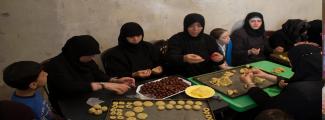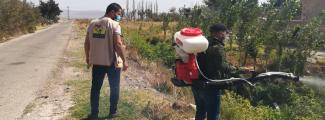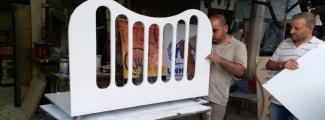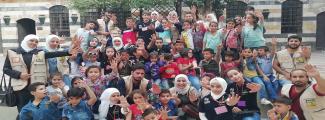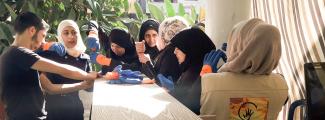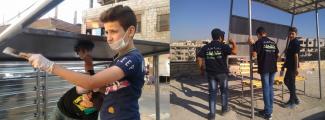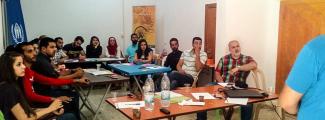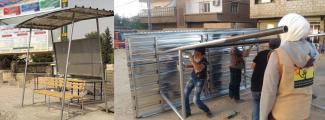“I forgot when was the last time I made sweets. Today while I was making sweets at the center, I asked the staff to bring in some flour and ghee, and I felt as if I was talking to my own kids, whom I have not seen for many years. This feeling of joy is priceless!”
The joy of Eid is only complete with the presence of sweets, which bear eid’s spirit and a special symbol among people. SSSD team at Arabesque Community Center coordinated efforts with people from the local community to make sweets for Eid Al-Adha. The community- based initiative was carried out in cooperation with UNHCR to bring joy and happiness to the hearts of the inhabitants of Bab Al-Hadid. One- hundred fifty women and adolescent girls worked for two days to make several types of Eid sweets that were distributed to the families in need, especially the most vulnerable. “Thank you very much for bringing in happiness to our hearts, to our area. Arabesque you are at the core of our hearts.”
Similar to the joy of the people receiving the sweets, the joy of the women and adolescent girls making the sweets was overwhelming: the spirit of cooperation, laughter, folklore songs, and cheers were remarkable. “This initiative brings in good memories about the long-forgotten gold days.”

